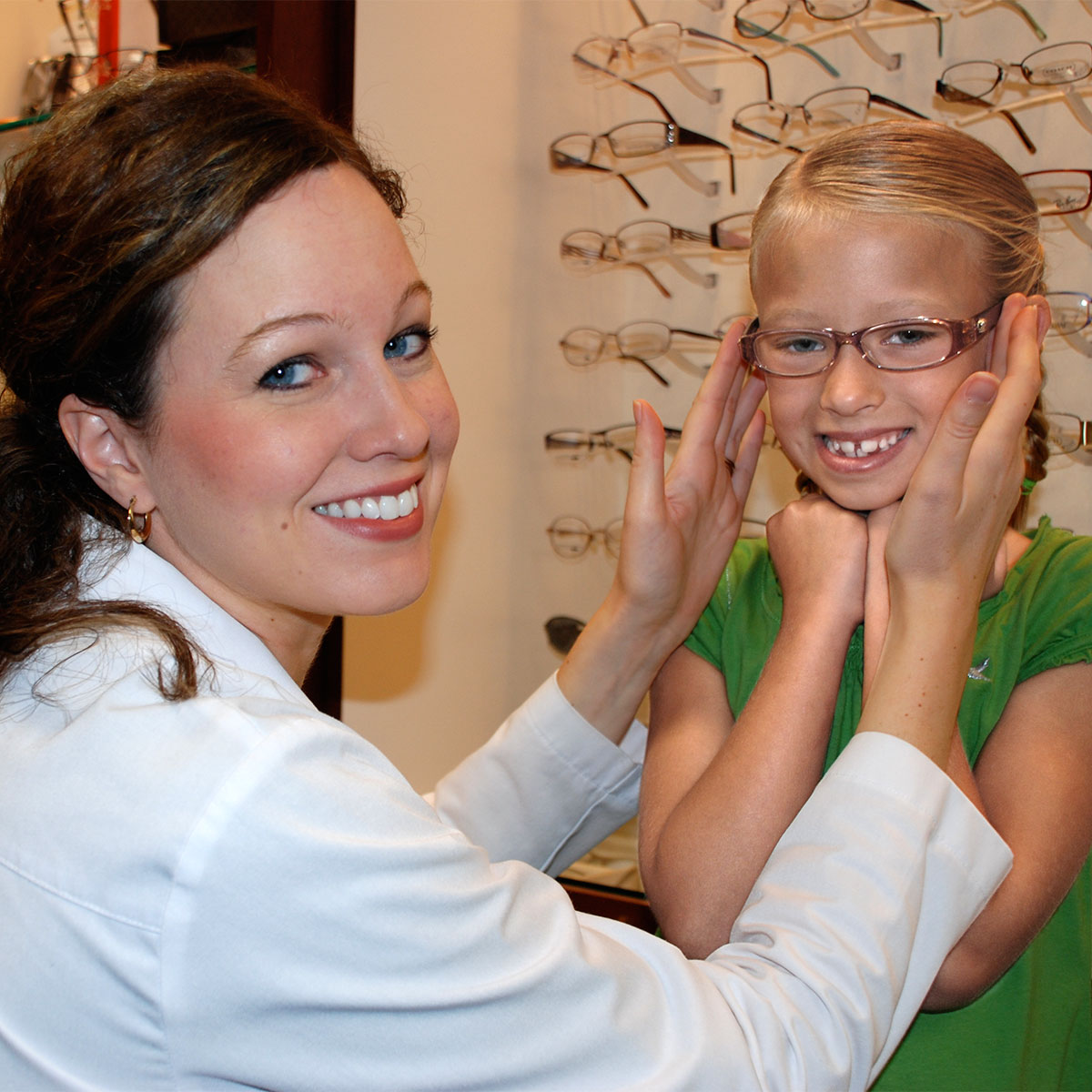When should your child have their first eye exam?
During back-to-school time, parents often find themselves back and forth to the family doctor or pediatrician for well-child visits, sports physicals and vaccination updates. We all know the importance of preventive care to keep kids healthy and thriving, but what about your child’s eyes? When should you schedule your child’s first eye exam?
Most parents don’t schedule a regular eye exam for their preschooler unless there’s an obvious problem. Typically, this doesn’t show up until a school vision screening when a child is old enough to use an eye chart. However, while these school vision screenings are important, important problems may be missed that can affect your child’s eyesight and learning.
The American Optometric Association estimates that vision screenings miss up to 75% of children with vision problems and give less than 4% of the information provided by a comprehensive eye exam. Because of the importance of vision in learning, some states even require a comprehensive eye exam for all children entering school for the first time.
However, there are many reasons why children as young as infants should be screened much earlier. Some warning signs include:
- Your child fails a vision screening.
- Your child’s vision screening is inconclusive or cannot be performed.
- You are referred by a pediatrician or school nurse.
- Your child has a vision complaint.
- You’ve observed abnormal visual behavior
- Your child has an existing medical condition like Down syndrome, prematurity, juvenile idiopathic arthritis, or neurofibromatosis.
- You have a family history of eye problems like amblyopia (lazy eye), strabismus (crossed or misaligned eyes), refractive errors (nearsightedness, farsightedness, or astigmatism), or more serious eye disease (retinoblastoma, congenital cataracts or congenital glaucoma). Children whose siblings have eye problems run a significantly higher risk of developing eye problems themselves.
- Your child has a learning disability, developmental delay, neuropsychological condition or behavioral issue.
According to the American Optometric Association (AOA), infants should have their first comprehensive eye exam with an Optometrist at 6 months of age. I generally recommend an exam from birth to 2 years old if there is suspicion of a problem or a family history of a problem. Children then should receive additional eye exams at 3 years of age, and just before they enter kindergarten or the first grade at about age 5 or 6.
For school-aged children, the AOA recommends an eye exam every two years if no vision correction is required. Children who need eyeglasses or contact lenses should be examined annually, or according to their eye doctor’s recommendations.
Many common pediatric eye problems like amblyopia or strabismus can be corrected early with patching, eye drops, or corrective lenses. Similarly, common refractive problems like myopia (nearsightedness) can be easily corrected with eyeglasses.
The key for parents is, number one, trust your gut, and, number two, don’t wait. If something doesn’t seem right with your child’s vision, chances are, you’re right. Talk to your pediatrician or family doctor about your concerns or call the eye department directly to schedule an appointment with an optometrist. No referral is necessary.
During the flurry of back-to-school preparedness, don’t take your child’s eye care for granted. Routine eye exams are as important as seeing your family doctor or dentist. Call and make an appointment today.
